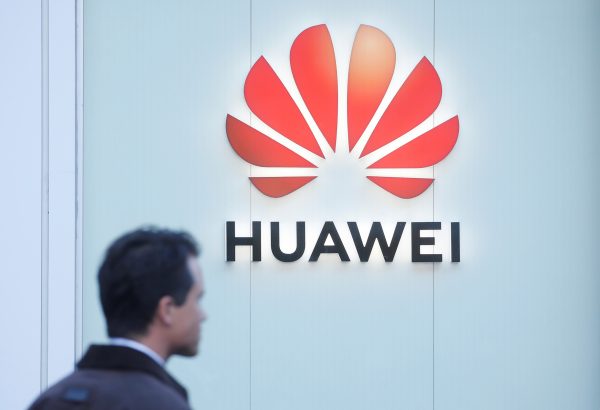But do the economic opportunities outweigh the risks to national security? Might the COVID-19 crisis have added a new and even more daunting dimension in working with a lead Chinese company?
Johnson insists that the UK’s critical national digital infrastructure will not be damaged. This relies on the decision that Huawei will provide only the ‘edge’ of the network — 35 per cent — and not its ‘core’, and an assumption that any security threat posed by Huawei can be fully contained.
Johnson’s decision was criticised at home and abroad — even by his fellow Conservative Party MPs and US President Donald Trump. Conservative MPs said that the United Kingdom has given China the keys. Australian MPs were so outraged that they cancelled a visit.
When the decision was ratified by Parliament in March, only 38 Conservative Party MPs voted against it but, following the COVID-19 catastrophe, two leading Tories with strong security backgrounds formed an internal pressure group, the so-called China Research Group, to orchestrate opposition to the Huawei decision and economic links with China (their model, the European Research Group, drove the Party’s conversion towards full support for Brexit and was largely responsible for putting Johnson in Downing Street).
Trump tweeted that ‘any nation who chooses to use an untrustworthy 5G vendor will jeopardise our ability to share intelligence and information at the highest level’. Some argue that the United States is trying to force allies to adopt policies simply to damage Chinese industry. The idea that China could build a sinister ‘kill switch’ into the UK’s 5G network has been firmly discounted by the UK intelligence community. Switches to ‘kill’ the internet are controlled by national governments and any means of doing so carefully protected, not least through encryption.
But it is not hard to see why people are sceptical. China’s 2014 Espionage Law and 2017 National Intelligence Law oblige Chinese firms, including Huawei, to support Chinese national security if instructed. While Huawei is not state-run, it is strongly state-sustained — and intimately locked into Chinese economic strategy and its Belt and Road Initiative. British intelligence has also offered contradictory comments on the risk of Chinese participation in 5G network building and the extent to which it can be mitigated. Some experts see no real distinction between ‘core’ and ‘edge’ in 5G delivery.
Johnson’s Huawei decision highlights the critical questions now facing the British government.
If the United Kingdom needed to quickly develop its services industry after Brexit to limit the losses to the British economy that will follow its exit from the European Single Market, the COVID-19 hit to the economy makes this even more vital now. The United Kingdom must be at the forefront of 5G because the future of services, such as health and banking, lies in their quick delivery. 5G is also critical to developing the internet of things, including smart cities, automated production lines, driverless vehicles and 3D printing. The ability to rebuild a strong economic base after the crisis will hinge on expanding the digital economy. Unleashing new economic potential will be a primary public policy concern.
But at the same time, the needs of the economy will have to be weighed against national security concerns. This dilemma is more complex given the catastrophic economic and public health consequences of the pandemic and the widespread public and political distrust of China.
Some argue that security is more important than economic prosperity and digital innovation. Yet in peacetime — facing an adversary rather than an enemy — the two issues are complementary. The prospect of a prolonged growth slowdown undermines national security beyond any hypothetical Chinese espionage which might be facilitated via Chinese telecoms. And were there any risk-free alternatives to Huawei? An alternative provider such as Ericsson or Nokia could only be developed with massive EU support. But with Brexit taking place this year, an EU alternative to Huawei is unlikely. Even without Brexit, the European Union has pressure on it to use Huawei over US technology due to issues of control.
Although policy assessments informed by British intelligence are not always correct — as evidenced by reports on Iraq and weapons of mass destruction in 2002 — they have no interest in getting another major intelligence assessment wrong. Nothing is risk-free, nor is risk assessment a pure science, as the pandemic demonstrates daily. But it is not impossible to judge which risks are greater and this is what it seems the British intelligence community has done.
The question of risk also lies at the heart of the US claim that Huawei will undermine UK digital security. The UK must balance the US threat that it would cease intelligence cooperation. Although the UK would prefer open intelligence sharing with the United States, it is not always useful or readily forthcoming — as evidenced by the US assassination of Iranian General Qasem Soleimani.
Now that the British government has signed up to the deal, it must learn to navigate the challenges that Huawei might present. 5G rollout is a top priority. Huawei is a market leader and cheaper than any other provider. It may carry risks, but so is the alternative of doing without 5G for the foreseeable future.
Anthony Glees is Emeritus Professor in the School of Humanities, The University of Buckingham.


It would have been helpful if the author provided an estimate of how much more costly or how much slower it would be to use another vendor. There have been reports ( https://www.businessinsider.com/huawei-study-finds-connections-between-staff-and-chinese-intelligence-2019-7 that thousands of CV’s (job applications) in China described working for Huawei and the Chinese Security apparatus at the same time and I assume this means there is close cooperation. Given the “wolf warrior” diplomacy and lack of transparency China has shown in reacting to suggestions there be an impartial investigation of the Covid virus, mere prudence would ask how big the price is for not using Huawei.